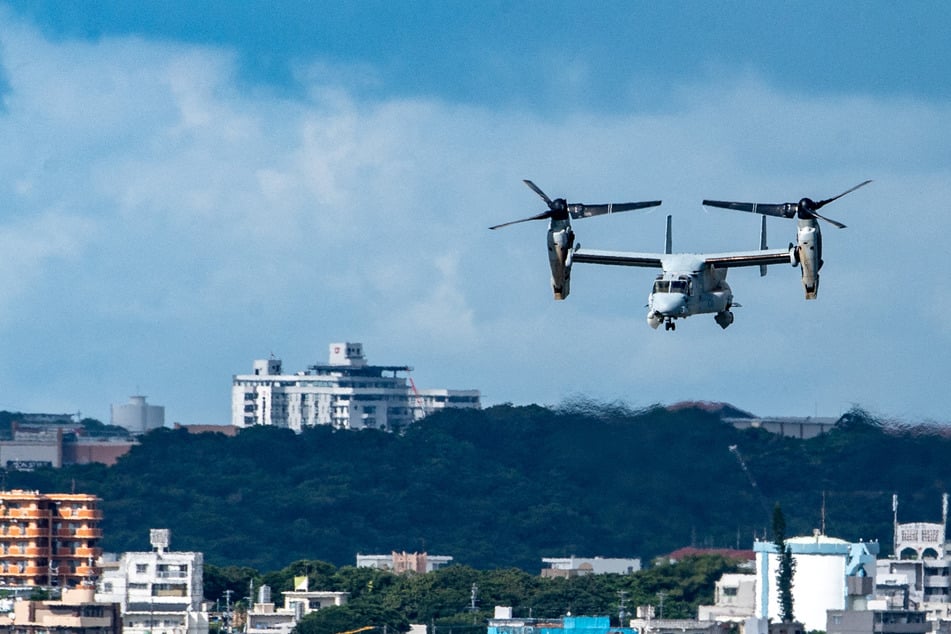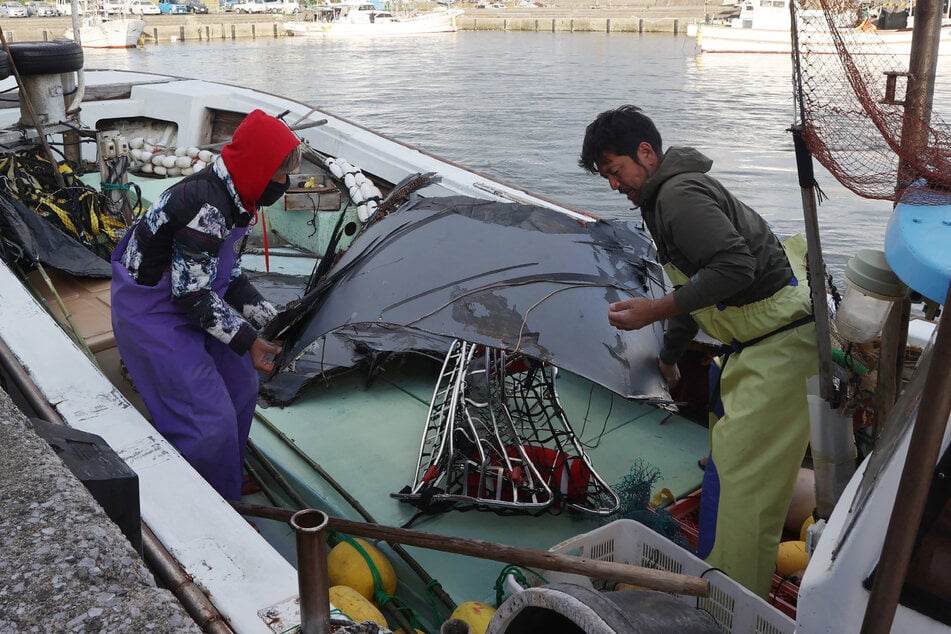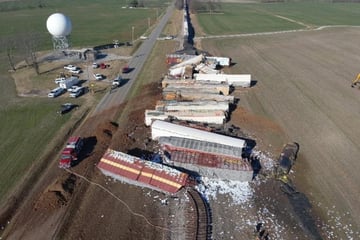US military gives green light to Osprey flights in Japan, sparking anger from worried locals
Ginowan, Japan - The US military on Thursday resumed Osprey flights in Japan, a local official said, ending a three-month grounding of the tilt-rotor aircraft after the latest in a string of deadly crashes.

The move sparked anger however in the southern Okinawa region where most US forces are based, with the governor saying worried locals had not been given an adequate explanation.
A US Osprey crashed off Japan in late November, killing all eight people on board and prompting the decision the following month to ground aircraft worldwide.
"We visually confirmed from this (city hall) building that an Osprey was flying at 8:54 AM (7:54 PM Wednesday)," an official from Ginowan, which hosts the Marine Corps Air Station Futenma in Okinawa, told AFP.
It comes after the US military said last week it would lift the grounding following "a meticulous and data-driven approach prioritizing the safety of our aircrews".
"Maintenance and procedural changes have been implemented to address the materiel failure" that led to the crash, allowing "for a safe return to flight," Naval Air Systems Command (NAVAIR) said.
And on Wednesday, Japan's defense ministry confirmed both its Self-Defense Forces and the US Forces in Japan could gradually resume Osprey flights from Thursday.
"There is no problem in the design and structure of Ospreys" and the accident was caused by a defect in specific parts of the aircraft, the ministry insisted.
Japanese governor demands Osprey ban

The local government in Okinawa prefecture where most of the 54,000 US military personnel in Japan are based has long been unhappy about Osprey operations.
"We... feel extreme anger that reports of flight resumption came before an explanation to locals," Governor Denny Tamaki told reporters Wednesday.
"We continue to demand the US military and the Japanese government not resume flights until they make clear the accident's cause and countermeasures, and remove Ospreys" from Okinawa, he said.
Government spokesperson Yoshimasa Hayashi said Thursday that not all Osprey would resume service immediately.
"Only those vetted for safety through maintenance and training will be allowed to resume operations, one by one, to prevent a recurrence of the accident," he told reporters.
Osprey aircraft has troubled history
Osprey aircraft – which can take off and land vertically like a helicopter and also fly like an airplane – have suffered a string of fatal accidents, including a crash in northern Australia that killed three US Marines last August, and another in Norway in 2022 that left four dead.
Three Marines were also killed in 2017 when another Osprey crashed off Australia's north coast and 19 Marines died when their Osprey crashed during drills in Arizona in 2000.
The US temporarily grounded the aircraft in Japan in 2016 after an Osprey crash-landed off Okinawa, again sparking anger among locals.
Cover photo: PHILIP FONG / AFP

